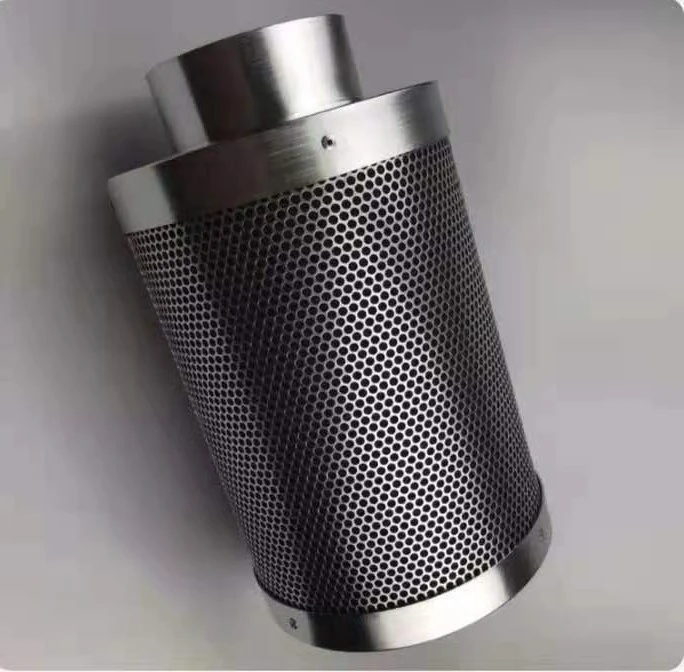 Tel:
+8615930870079
Tel:
+8615930870079
Dec . 22, 2024 06:28 Back to list
Optimizing Air Intake Filters for Turbines to Enhance Performance and Efficiency
Turbine Air Intake Filters Importance and Best Practices
In modern aviation and industrial applications, turbines play a crucial role in ensuring efficiency and performance. One often overlooked but vital component of turbine operation is the air intake filter. Turbine air intake filters are essential for protecting the engine from unwanted particulate matter, ensuring optimal performance and longevity.
Turbines, whether used in jet engines, power generation, or industrial applications, require a steady intake of clean air. Contaminants such as dust, sand, and other particulates can significantly impair turbine functionality. The air intake filters serve as the first line of defense, preventing these particles from entering the compressor section of the turbine.
Types of Turbine Air Intake Filters
There are several types of air intake filters used in turbines, each designed to meet specific needs. The two main categories are dry filters and wet filters.
1. Dry Filters These are commonly used in gas turbines and are often made of synthetic media. They are designed to trap particulate matter while allowing airflow to remain relatively unrestricted. Dry filters are preferred for their simplicity and effectiveness in a variety of environments.
2. Wet Filters Common in certain industrial applications, wet filters use a moisture-laden medium to capture contaminants. These filters are effective at removing finer particles, but they can be more complex to maintain and may require regular treatment to ensure optimal performance.
The Importance of Regular Maintenance
turbine air intake filters

The efficiency and performance of turbine air intake filters depend heavily on regular maintenance. When filters become clogged with dirt and debris, airflow is restricted, leading to decreased turbine performance. This can manifest as reduced power output, increased fuel consumption, and even potential damage to the turbine components.
Regular inspections should be a standard part of the maintenance schedule for any turbine. During these inspections, technicians should assess the condition of the filters, identifying any signs of wear or significant buildup of contaminants. Depending on the operating environment, it may also be necessary to clean or replace filters more frequently to maintain peak performance.
Best Practices for Filter Selection and Maintenance
Selecting the right air intake filter for a turbine is critical. The choice often depends on various factors such as the environment, the specific application of the turbine, and manufacturer recommendations. Users should consider filters with a high dust-holding capacity and low-pressure drop to ensure they effectively trap contaminants while allowing adequate airflow.
Once the appropriate filters are in place, adhering to a regular maintenance regime is paramount. This includes routine inspections, cleaning when necessary, and timely replacements. Keeping a log of filter performance and maintenance actions can help in predicting when filters will require servicing, thus avoiding unexpected downtime.
Additionally, training personnel on the significance of air intake filters can enhance the overall maintenance culture surrounding turbine operations. Ensuring that all staff is aware of the critical role filters play in the machinery can foster a proactive approach to maintenance.
Conclusion
In summary, turbine air intake filters are a critical component of turbine performance and longevity. By understanding their importance, selecting the appropriate type, and committing to regular maintenance practices, operators can protect their investment and ensure their turbines operate at the highest efficiency. As technology progresses, staying informed about advancements in filtration methods can further enhance turbine performance and reliability. Investing in quality air intake filters and proper maintenance practices reap long-term benefits, ultimately leading to improved operational efficacy.
-
Types and Applications of Air Filtration CartridgesNewsJul.28,2025
-
The Role of Gas Turbine FiltersNewsJul.28,2025
-
Mastering Air Filter Cartridge UseNewsJul.28,2025
-
Advanced Turbine Filters for Modern Gas TurbinesNewsJul.28,2025
-
Cellulose Air Filter Cartridge Advantages in Dust FiltrationNewsJul.28,2025
-
Cellulose Filters for Air Particle ReductionNewsJul.28,2025

 Email:
Email:





